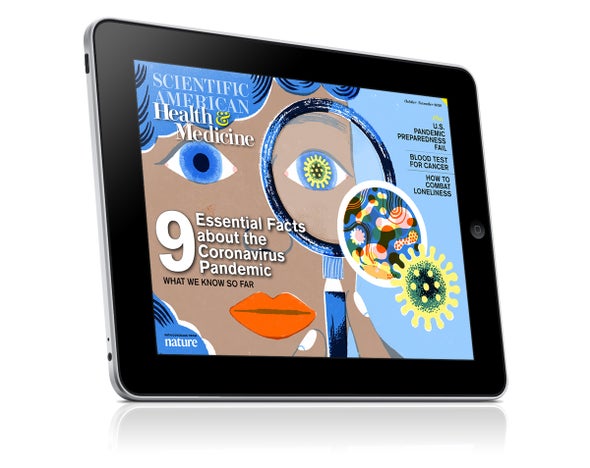The past six months have felt like an eternity for those of us isolating and staying home. And I imagine they’ve also felt like a stressful slog to every essential worker who has showed up day in, day out, to keep people fed and healthy. But for science and medical research, six months is a relative blink of an eye. Scientific understanding about new diseases such as SARS-CoV-2 usually takes years, not months. Consider that HIV was first isolated and identified in 1983, and nearly 40 years later we still don’t have a bona fide cure—although we’re getting closer—but thanks to major advancements in antiretroviral therapy, most people who contract the disease can lead long and healthy lives. Some early advice about how to avoid the novel coronavirus was barely more than a best guess based on previous knowledge (for example, we now know that surface transmission of the virus is rare). In this issue’s cover story, Scientific American editor in chief Laura Helmuth provides a definitive list of the hard-won certainties we’ve gleaned about COVID-19 in six short months (see “Nine Important Things We’ve Learned about the Coronavirus Pandemic So Far”).
Also in this issue, Amy Maxmen profiles the global history of so-called pandemic games that epidemiologists use to model and predict how global diseases might arise and, most important, how we can prepare to mitigate them. Despite such exercises, she details how the U.S. has so badly bungled its handling of the virus (see “Two Decades of Pandemic War Games Failed to Account for Donald Trump”). She posits that powerful treatments and vaccines might be the solution for countries with rampant outbreaks. But of course, such remedies take time.


